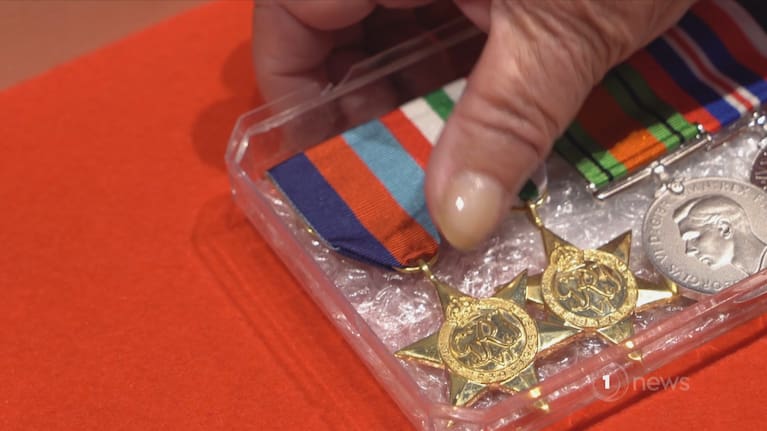New research has revealed that thousands of World War Two campaign medals were never claimed by veterans on their return home.
The research was undertaken by the NZDF states that around 85% of Kiwis who served overseas during the war have now had their medals issued.
The New Zealand Army and Royal New Zealand Air Force are suggested to have had the lowest uptake of medals.
While researchers don't exactly know how many men never received their medals, the estimated number is around 22,000.
NZDF historian Matthew Buck said the number was surprising.
"Given the importance placed on medals today, it's hard to fathom that only around a quarter of New Zealand Army and Royal New Zealand Air Force veterans claimed their medals by 1960," Buck said.
"After that, the take-up appears to have been nothing more than a dribble - less than a third of a percent annually."
He said the main reason for ex-servicemen not claiming their medals was that they had no personalised details on them, making them feel valueless.
"The main reasons given by veterans for not claiming their medals were that, unlike First World War veterans, they were required to apply for them and the medals were issued without their names, ranks and service numbers engraved on them.
"Many felt that this made their medals valueless," said Buck.
"Most complaints from New Zealand veterans centred around having to go 'cap in hand' for something they'd earned, which they felt should have been awarded to them as of right. There was also a perception that it was vainglorious to apply for your medals.
"Others expressed the view that there were too many medals, and that they were awarded far too widely and to groups who they considered undeserving."
This was a completely different number compared to the 100% uptake of war service gratuity payments, which could amount to the money needed for a house deposit in some cases.
The reason why the medals were uniform and lacked engravings was because of the sheer number being sent out.
"It was estimated in 1950 that engraving all the medals would take six years.
"By this stage, moreover, the government had become convinced that the low take-up of medals elsewhere in the Commonwealth showed that engraving the medals would do little to persuade veterans to apply for them," Buck said.
Defence historian John Crawford said the response shouldn't be surprising.
"By the early 1950s, the Second World War was well over, and authorities were very focused on the war in Korea and the risk of it escalating.
"Those who had served were generally young men, now well established in civilian life with young families. Their military service was well behind them, and they were past being told what to do by the military," said Crawford.
"For many of these men, there had been no glamour in what they had been through, with horrific and brutal memories and lost friends.
"Moreover, everyone had served.
"They knew what their neighbours and friends had done in the war, and they didn't need medals to know that."
He said the perception of these medals has changed over time, however, saying they "keep alive their memory, encourage families to learn more, share their stories and wear the medals with pride".
The NZDF is encouraging families to enquire as to whether their relatives were issued their campaign medals.






















SHARE ME